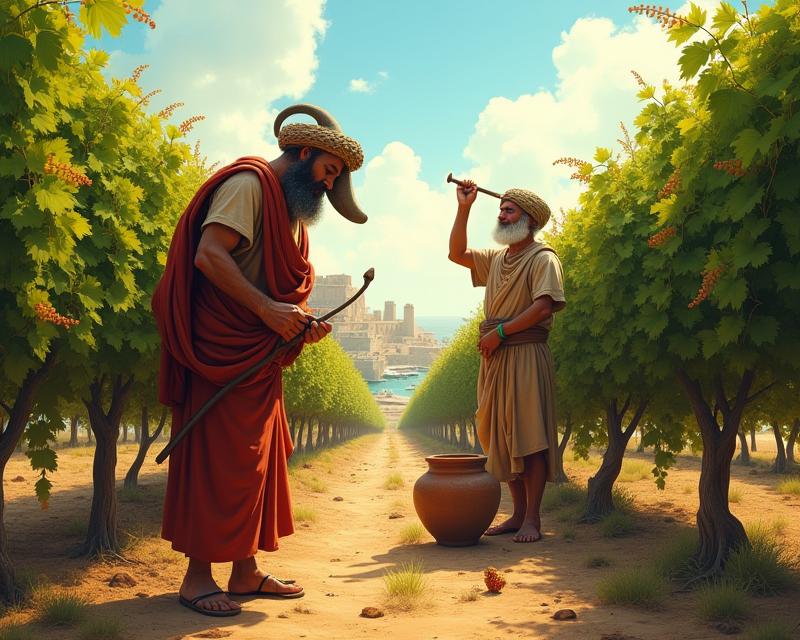Ceres: Goddess of Harvest & Farming
Publish in Agriculture el 05/07/2025 20:56
Ceres: The Roman Goddess Who Shaped Farming
For centuries, farmers and gardeners have looked to the seasons with a mix of anticipation and a little bit of worry. The success of our work hinges on the earth's cycles, and understanding those cycles has always been crucial. In Roman mythology, the goddess Ceres embodied this very connection – she was the powerful deity of agriculture, grain, fertility, and the harvest. Her story isn't just a fascinating piece of history; it offers a glimpse into the deep-seated respect ancient cultures held for the land and the vital role farmers played in society.

Ceres' origins are a bit shrouded in mystery, with various legends surrounding her birth and lineage. One popular tale tells of her being the daughter of Saturn and Ops, and her abduction by Pan, the god of the wild. This story highlights the inherent connection between the cultivated fields and the untamed natural world. Regardless of the specific narrative, Ceres was revered as a protector of crops and a symbol of abundance. Roman farmers would offer prayers and sacrifices to her, hoping for a bountiful harvest and protection from famine. Festivals dedicated to Ceres, like the Cerealia, were major events, celebrating the agricultural cycle and ensuring a prosperous year ahead. These festivals weren't just religious observances; they were community gatherings, reinforcing the importance of shared labor and collective well-being.
The influence of Ceres extended far beyond simple prayers. Her worship was deeply intertwined with the Roman state. Temples were dedicated to her, and she was honored in public ceremonies. The very word 'cereal' is derived from her name, a testament to her enduring legacy. Think about it – the foundation of Roman society, and indeed many ancient societies, rested on successful agriculture. Ceres represented not just the food on our tables, but also the stability and prosperity of the entire community. Her mythology served as a constant reminder of the responsibility farmers held and the importance of honoring the land.
While we may not worship Ceres today, her influence continues to resonate. The respect for the seasons, the dedication to nurturing the soil, and the understanding of the delicate balance between humanity and nature – these are all echoes of the ancient reverence for Ceres. As farmers and gardeners, we can learn from her story. It reminds us to appreciate the hard work that goes into producing food, to be mindful of the environment, and to recognize our place within the larger cycle of life. So, the next time you’re tending your crops, take a moment to remember Ceres, the goddess who understood the power of the earth and the importance of a good harvest. Her legacy lives on in every seed we sow and every crop we reap.





